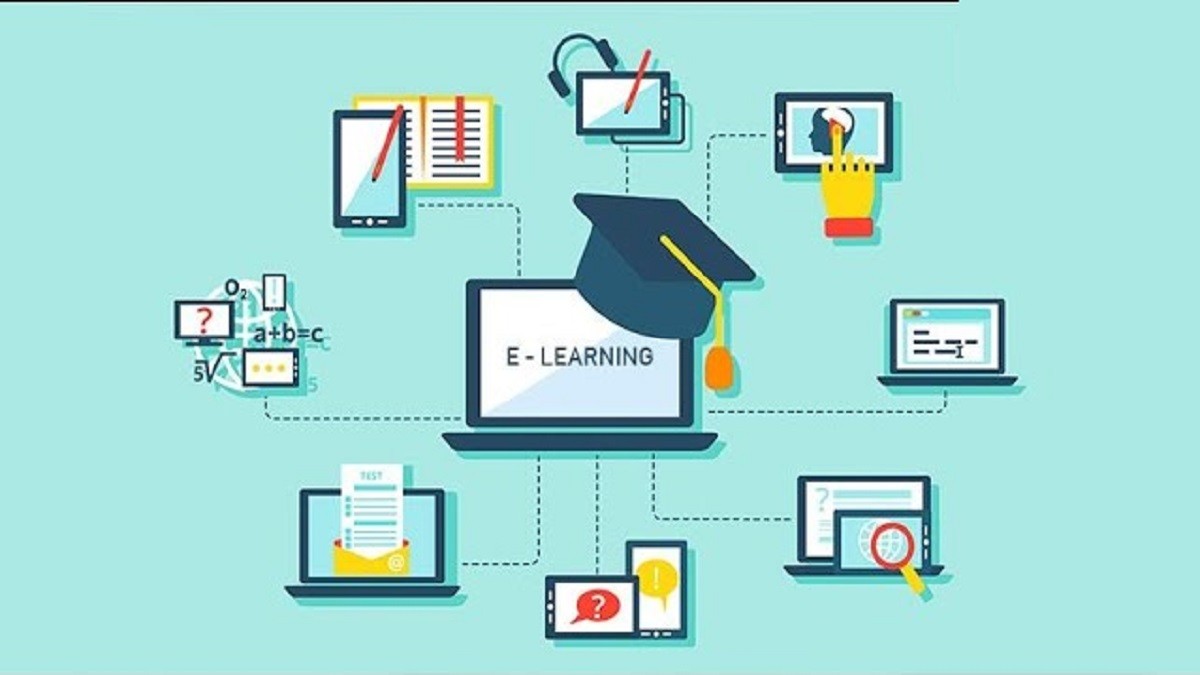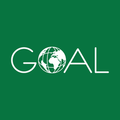

Development of a Guiding Document for the Localization of Disaster Risk Mgmt
26/9/2024 www.akhtaboot.comAmman, Jordan
أخرى
Job requirements
-
7 - 10
-
Senior (Team Leader/Staff Supervisor)
Description
About Mercy Corps
Mercy Corps is powered by the belief that a better world is possible. To do this, we know our teams do their best work when they are diverse, and every team member feels that they belong. We welcome diverse backgrounds, perspectives, and skills so that we can be stronger and have long term impact.
The Program
Jordan grapples with escalating climate-related disasters, posing a critical challenge to its humanitarian efforts, economic stability, and environmental integrity. Despite its position as one of the world's most water-scarce nations, Jordan is witnessing a distressing surge in flash floods, a peril that ranks at the top of the Jordan National Disaster Risk Reduction Strategy 2023-2030. Factors such as degraded vegetation, haphazard urbanization, and the relentless impact of climate change worsen these floods, devastating local communities and the eco-tourism sector. Moreover, Jordan suffers from devastating heat waves due to climate change, leading to desertification, diminished water supplies, and exacerbated water scarcity. Since 2021, Mercy Corps Jordan (MCJ) has been actively engaged in enhancing the resilience of vulnerable communities against floods, as part of Phase 2 of the Zurich Climate Resilience Alliance (the Alliance) work, which concluded in December 2023. Moving forward into Phase 3, MCJ remains committed to its mission of mitigating the severe impact of floods and heatwaves on vulnerable communities in Jordan. This project comes in alignment with the visionary efforts of the Alliance to build a world where communities are resilient to climate hazards, enabling them to thrive.
The Alliance is a multi-sectoral partnership, powered by the Zurich Foundation, focused on enhancing resilience to climate hazards in both rural and urban communities. Formerly the Zurich Flood Resilience Alliance, we have over a decade of experience in generating evidence of communities’ current levels of climate
resilience and identifying appropriate solutions.
Our partners are drawn from the humanitarian, NGO, research and private sectors. We work together to achieve our vision by implementing solutions, promoting good practice, influencing policy and facilitating systemic change.
Background
Jordan, like all other countries in the world, faces different types of risks that are challenging its development and prosperity. Although we can recognize many of these risks (now and in the future), we must be aware that the future is uncertain; many important and unexpected events can happen, but it is difficult to predict.
The capacity assessment of the disaster risk management (DRM) system in Jordan (known as CADRi report/assessment 2017) indicated that there are a set of challenges for having strengthened systems and capacities. Examples of these challenges are the lack of comprehensive risk information
accessible to decision-makers, the lack of relevant legislation regarding the availability of disaster risk information to public and private sector stakeholders at the national or local level; the absence of standard guidelines or formalized methodology for conducting risk assessment and significant capacity gaps among central and local government in understanding risk information and its application.
The Government of Jordan has made significant progress in the Disaster Risk Reduction (DRR) sector at the national level, with two editions of the National Strategy of Disaster Risk Reduction (NSDRR) (2019-2022) and the latest one (2023-2030), aligned with Sendai framework priorities and goals. The DRR strategy focuses on enhancing resilience and preparedness against natural, biological, and man-made hazards. The government's commitment is evident through various policies, frameworks, and collaborative efforts with international organizations and UN agencies to implement effective DRR strategies.
Mercy Corps and UNDP have agreed to join efforts to enhance DRR in Jordan by localizing and enforcing the national DRR strategy (2023-2030). This partnership recognizes the crucial role of the National Center for Security and Crisis Management (NCSCM) and Ministry of Local Administration (MoLA) in achieving these goals.
This assignment will contribute to following project outcomes:
- Mercy Crops’ Zurich Climate Resilience Alliance (the Alliance) Project: The consultancy will support the outcome "Strengthening the implementation of DRR/CCA policies at the local level."
- UNDP’s Enhancing Country Resilience (ECR) Project: Within the ECR project, this assignment aligns with Component 2, focused on management and measures development. The expected outcome is to "Empower stakeholders to apply DRR measures and approaches in their fields and sectors."
Consultant Objectives:
This TOR seeks a qualified consultant to work with relevant stakeholders to develop a guiding document for the “Localization of Disaster Risk Management (DRM) in Jordan”. This document will be launched by MoLA and
distributed to all municipalities in coordination with NCSCM.
The objective of this consultancy is to develop a comprehensive, practical, and inclusive guiding document to support the localization of Disaster Risk Management (DRM) practices in Jordan. The document will enable municipalities to efficiently incorporate the National Strategy for Disaster Risk Reduction (2023-2030) into
their local planning processes, with attention to cross-cutting issues like gender, climate change, and inclusion.
The guiding document will serve as a framework to enhance local implementation capacities, accommodate specific local needs, outline resource allocation, and establish performance monitoring mechanisms, while promoting cohesive and coordinated efforts across all government tiers. Once finalized and endorsed, the guiding document will be distributed to all municipalities, along with training sessions on its usage.
Stakeholder Engagement:
The consultant will engage stakeholders during the preparation, implementation, and closing phases to ensure the highest possible quality of the final guiding document.
Conduct consultations and interviews with relevant government agencies at both local and national levels, and other stakeholders to gather insights, such as but not limited to:
- Representatives of the Ministry of Local Administration.
- National Center for Security and Crises Managment
- Ministry of Interior (Governorate), Directorate of Public Security.
- Representatives of the municipalities concerned.
- Representatives of the Ministry of Environment.
Consultant Activities:
Inception Phase:
- Attend a kickoff meeting with the project team from Mercy Corps and UNDP, to establish a consensus on the scope, methodology, and implementation details.
- Conduct a baseline assessment of current DRM practices and challenges at the municipal level.
-Review the NSDRR 2023-2030, the Sendai Framework, and other relevant international and national frameworks.
- Identify and adapt best practices for DRM localization from other regions or countries that are applicable to Jordan’s context.
Deliverables:
Develop an inception report that summarizes key findings, the methodology, a detailed plan of action, stakeholder engagement plan, and the layout outlines of the Guiding Document.
Implementation Phase:
Stakeholder Engagement & Consultation:
- Conduct participatory consultations and workshops with key stakeholders at national and municipal levels.
- Engage stakeholders to gather inputs and validate the content of the guiding document.
Development of the Guiding Document:
- Draft a guiding document that includes clear guidelines, tools, and templates for the localization of DRM.
- Include recommendations on the synergies between DRM and climate change adaptation, addressing the intersection of these issues at the local level.
- Develop a mechanism for monitoring and evaluation for municipalities for the guiding document implementation by municipalities, enabling MoLA, Mercy Corps, UNDP and relevant parties to track its adoption by the targeted municipalities following the guiding document publication.
Validation and Dissemination:
-Present the draft guiding document to MoLA and other key stakeholders for validation.
-Incorporate feedback and finalize the guiding document.
-Facilitate a national dissemination workshop to introduce the guide to all municipalities and relevant stakeholders.
Deliverables:
-1st draft of the Guiding Document.
-Indicators and M&E framework.
-Documentation of stakeholder meetingsand a progress report, (including validation and dissemination report).
Closing Phase:
Capacity Building Plan:
-Provide a plan for MoLA to build the capacities of local municipalities to implement and integrate this guiding document.
-Provide recommendations for maintaining and updating the guide over time, ensuring its relevance and sustainability.
Deliverables:
-Develop a comprehensive Final Report, consolidating all feedback, and including a final draft
of the Guiding Manual and M&E framework.
-Include a clear roadmap for the implementation of the guidelines and recommendations, with short-term and medium-term actions.
-Capacity building plan.
Timeframe /Schedule:
The consultant should propose a full timeline for this consultancy that falls within 180 calendar days from the contract signing, it’s estimated between Oct 2024 to Mar 2025.
(consultant to propose the exact number of working days needed to complete the work based on
the level of effort required within the proposed timeframe mentioned above).
Required Experience & Skills:
-7-10 years of experience in relevant technical field (required)
- Advanced degree in disaster risk
management, environmental studies, public administration, or a related field.
-Experience in climate change, risk/crisis management, resilience, and national disaster risk reduction strategies is mandatory.
-Proficiency in conducting relevant assignments in risk management guidelines or generic plans in fields linked to risk management.
- Familiarity with the humanitarian and development context is a plus.
- Strong analytical and reporting skills are mandatory.
-Strong and wide networks including access to private entities, authorities, and government.
-Expertise in adapting participatory approaches and gender-sensitive approaches and methodologies.
Application:
How to Apply: Mercy Corps Jordan is seeking a qualified consultant to work on the development of a Guiding Document for the Localization of Disaster Risk Management (DRM) in Jordan. If you are interested, please send the requirements to the Mercy Corps – human resources department at
"jo-recruitment@mercycorps.org”. The last date for submission is on the 10th of October2024 indicating the title of the consultancy" Consultant: Development of a Guiding Document for the Localization of Disaster Risk Management (DRM) in Jordan."
Interested applicants must submit their applications including the following:
➔ Technical Proposal
Interested consultant(s) must submit a technical proposal covering but not limited to the following:
- Consultant experience and qualification: Brief about the applicant and CVs of the team members, if any, who will be part of the assignment.
- The methodological approach that will be followed by the applicant throughout the assignment,
including the way in which the consultant intends to carry out activities to achieve the objectives mentioned throughout this ToR.
- Clear work plan with a detailed breakdown of tasks and dates as per the deliverables identified above.
Including a clear outline of the roles and responsibilities of the team members that will be engaged throughout this assignment.
- Examples of former relevant work conducted by the applicant
➔ Financial Proposal
Applicants must provide details of the financial offer as a lump sum amount per deliverable including all costs such as resources, domestic or international travel, communication, and any other expenses required by the consultant to complete the deliverables, preferably in JOD.
(Mercy Corps will cover the costs associated to the event venues and participants. The consultant should budget only for their own expenses, including preparation and facilitation for all meetings/workshops/events needed to fulfill the deliverables.)
The overall proposed amount should include tax. Offers will be evaluated against the Mercy Corps’ cost-effectiveness and efficiency standards.
➔ References
The consultant (s) to share the information of two Recent References including; name, email, phone number, and address.
The Consultant will work closely with: Mercy Corps Program Teams, UNDP team, MoLA, NCSCM and
other related stakeholders for the project
The Consultant will report to: Mercy Corps team
Diversity, Equity & Inclusion
Achieving our mission begins with how we build our team and work together. Through our commitment to enriching our organization with people of different origins, beliefs, backgrounds, and ways of thinking, we are better able to leverage the collective power of our teams and solve the world’s most complex challenges. We
strive for a culture of trust and respect, where everyone contributes their perspectives and authentic selves, reaches their potential as individuals and teams, and collaborates to do the best work of their lives.
We recognize that diversity and inclusion is a journey, and we are committed to learning, listening and
evolving to become more diverse, equitable and inclusive than we are today.
Equal Employment Opportunity
We are committed to providing an environment of respect and psychological safety where equal employment opportunities are available to all. We do not engage in or tolerate discrimination on the basis of race, color, gender identity, gender expression, religion, age, sexual orientation, national or ethnic origin, disability (including HIV/AIDS status), marital status, military veteran status or any other protected group in the locations where we work.
Safeguarding & Ethics
Mercy Corps team members are expected to support all efforts toward accountability, specifically to our stakeholders and to international standards guiding international relief and development work, while actively engaging communities as equal partners in the design, monitoring and evaluation of our field projects. Team members are expected to conduct themselves in a professional manner and respect local laws, customs and MC's policies, procedures, and values at all times and in all in-country venues.








